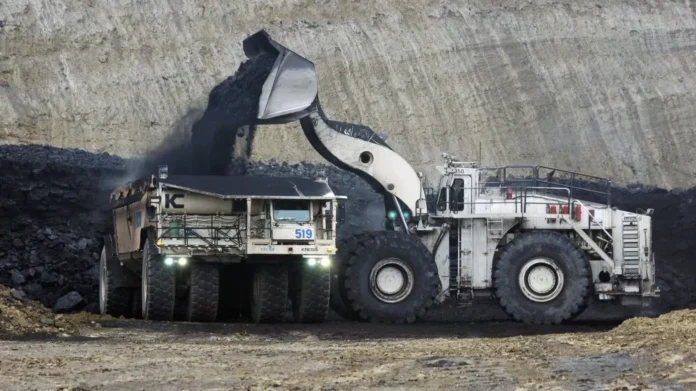As the world continues to grapple with the effects of climate change, the debate over renewable energy sources has become a hot topic. In the United States, this debate has taken center stage as Republicans and Democrats clash over the best way to address the issue. In the midst of this heated discussion, a surprising development has emerged – Republicans are pushing for tax subsidies for coal, a move that has raised eyebrows and sparked controversy.
In their massive reconciliation package, Republicans have been working to pare down tax subsidies for renewable energy sources. This move has been met with criticism from Democrats and environmentalists who argue that it goes against the global effort to reduce carbon emissions and transition to cleaner energy sources. However, what has caught many by surprise is the fact that Republicans are also including an incentive for coal, a fossil fuel that has long been associated with pollution and environmental degradation.
The Democrats’ 2022 Inflation Reduction Act, on the other hand, included tax credits for the mining of 50 “critical minerals”. These minerals, which are essential for the production of renewable energy technologies, have been identified as key components in the fight against climate change. The list includes substances such as lithium, graphite, and rare earth elements, which are crucial for the production of solar panels, wind turbines, and electric vehicle batteries.
The inclusion of tax credits for coal in the Republican package has raised concerns among environmentalists and Democrats, who see it as a step in the wrong direction. However, Republicans argue that this move is necessary to support the steel industry, which relies heavily on coal for the production of steel. They argue that without this support, the industry would suffer and could potentially lead to job losses and economic downturn.
While the debate over the inclusion of coal subsidies in the reconciliation package continues, it is important to understand the reasoning behind this move. The steel industry is a vital part of the American economy, providing jobs and contributing to the country’s GDP. However, it is also a major contributor to carbon emissions, with the production of steel accounting for 7% of global emissions. This is where the use of coal comes into play.
Coal is a key component in the production of steel, with around 70% of the world’s steel production relying on it. The process of turning iron ore into steel involves heating it in a blast furnace with coke, a form of coal. This process releases large amounts of carbon dioxide into the atmosphere, making it a major contributor to climate change. However, with the use of advanced technologies, the emissions from this process can be significantly reduced.
This is where the tax subsidies for coal come in. By providing incentives for the use of coal in the steel industry, Republicans are hoping to encourage the development and implementation of cleaner technologies. These technologies, such as carbon capture and storage, can help reduce the carbon emissions from the production of steel. This, in turn, would help the industry become more sustainable and environmentally friendly.
Moreover, the tax subsidies for coal are not the only incentive included in the Republican package. It also includes tax credits for the development and use of carbon capture and storage technologies. This shows that Republicans are not completely disregarding the issue of climate change and are willing to support the transition to cleaner energy sources.
On the other hand, the Democrats’ inclusion of tax credits for critical minerals is a step in the right direction. These minerals are essential for the production of renewable energy technologies and reducing our reliance on fossil fuels. By providing incentives for their mining, the Democrats are promoting the development of a more sustainable and environmentally friendly energy sector.
In conclusion, while the inclusion of tax subsidies for coal in the Republican reconciliation package may seem counterintuitive, it is important to understand the reasoning behind it. The steel industry is a vital part of the American economy, and by supporting it, Republicans are also supporting the livelihoods of many Americans. However, it is crucial that these subsidies are coupled with incentives for the development of cleaner technologies. This would not only help reduce carbon emissions from the steel industry but also promote the transition to a more sustainable energy sector. As the debate over the reconciliation package continues, it is important for both parties to work together towards a common goal – addressing climate change and promoting a cleaner, greener future for generations to come.

